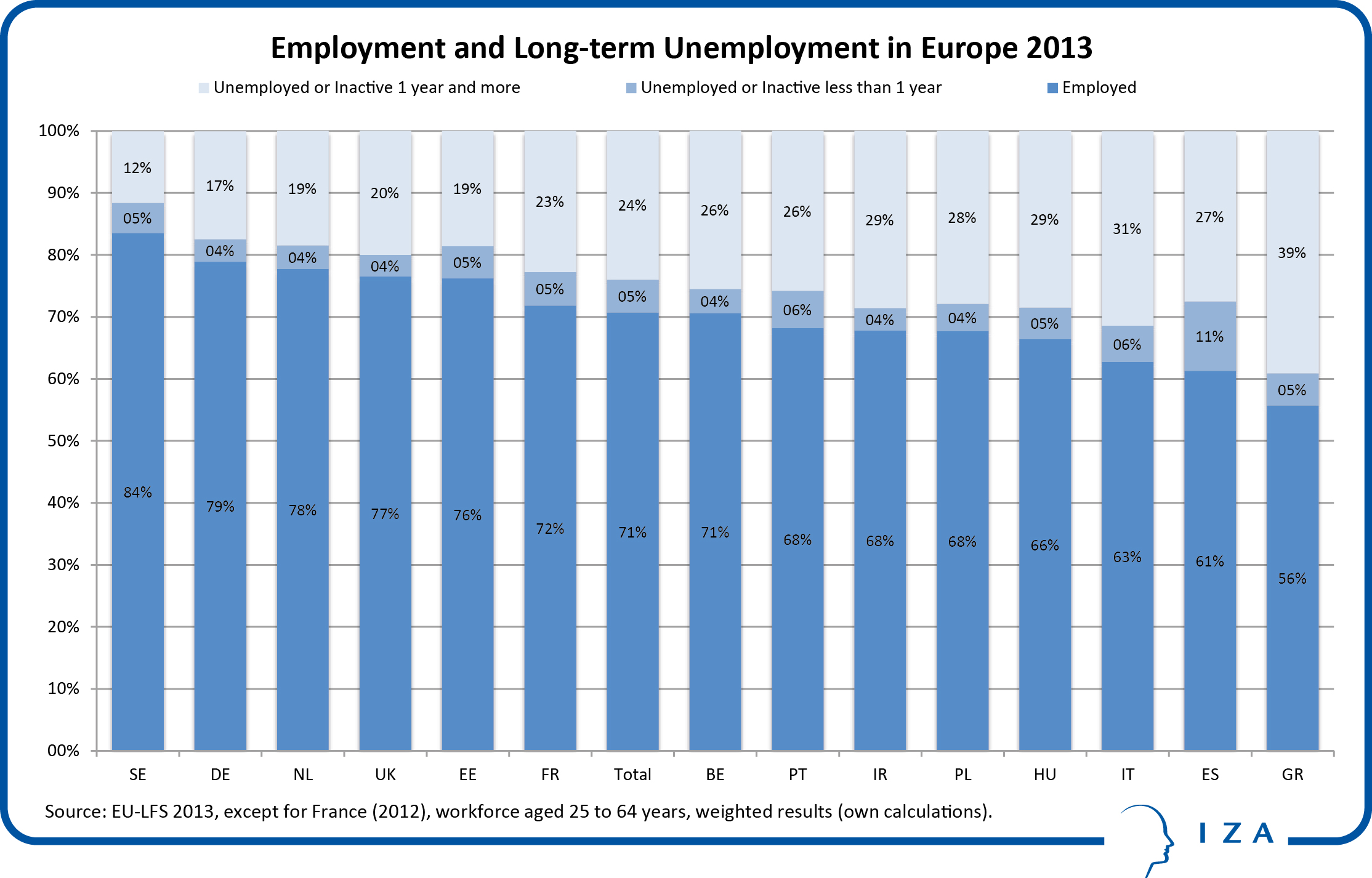In the aftermath of the 2008/09 recession, long-term unemployment has increased in many EU member states. Even in some countries with a favorable economic environment that contributed to declines in overall unemployment, the share of long-term unemployed in total unemployment remains at high levels.
 In addition, some countries with low long-term unemployment rates have persistently high numbers of working-age long-term benefit recipients (e.g. disability, sickness or early retirement) so that the overall numbers of people dependent on benefits are more similar across countries than a comparison of long-term unemployment figures suggests.
In addition, some countries with low long-term unemployment rates have persistently high numbers of working-age long-term benefit recipients (e.g. disability, sickness or early retirement) so that the overall numbers of people dependent on benefits are more similar across countries than a comparison of long-term unemployment figures suggests.
This calls for a careful assessment of the various institutions that account for long-term non-employment of people at working age in Europe. One might even argue that high shares of long-term unemployment are not necessarily worse than having hidden unemployment in benefit systems that are not governed by the principle of activation, i.e. public policies that aim at making the long-term non-employed fit for the labor market.
Apart from the general issue of labor demand and achieving a better macro-economic environment in Europe, activation policies – in particular suitable active labor market policies – can in fact help facilitate exits from benefit dependency and entry into employment.
What we have learned from two decades of activation policies for the long-term unemployed in Europe is that it is not enough to promote ‘work first’ or ‘workfare’ policies without offering proper support in terms of training and other measures that tackle individual barriers to employment in terms of qualification, health, social and psychological issues.
While active labor market policies can make a difference in raising transition rates from long-term unemployment to (relatively stable) employment, there is no a priori preference for certain programs such as training, hiring incentives, start-up support or temporary public employment opportunities. Rather, to achieve more sustainable employment paths, it is important to provide individualized packages of supportive policies that really help improve the employability and stabilize employment after having found a job.
Research shows that the quality and frequency of interactions with case workers is crucial. What we need is sufficient capacities in terms of well-trained case workers within the public employment services that are not overburdened by high caseload figures and can maintain an intense relation with their clients over a longer period.
Member states with high long-term benefit receipt figures need to invest in these capacities. They should also extend the principle of activation to benefit systems aside from unemployment benefits. This process that takes time, but it can really help improve labor market integration and reduce expenditure on benefits, as the Dutch policy reversal in disability pensions shows. The EU can help promote capacity building and policy innovation through the European Social Fund.